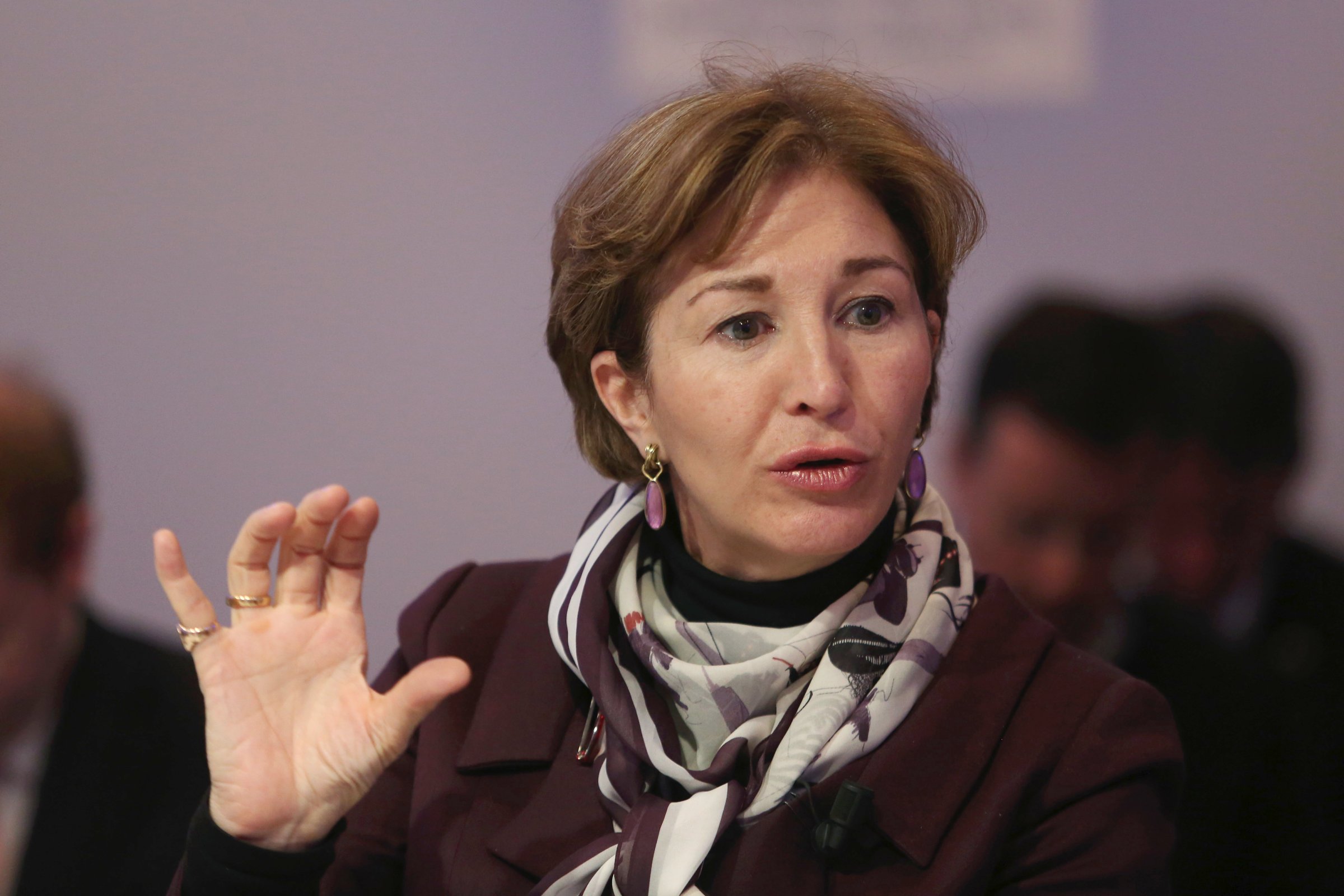
Anne-Marie Slaughter doesn’t shy away from her philosophical differences with Sheryl Sandberg in her new book — but she’s not throwing any punches either.
In Unfinished Business, out this month, Slaughter lays out why she disagrees with some parts of the Lean In philosophy, but respects the Facebook COO as a leader. The two women have often been held up as opposing voices in the debate about why exactly women can’t rise to the top professionally. In Slaughter’s 2012 Atlantic article “Why Women Still Can’t Have It All,” she argued that American workplace structures are inherently hostile to women; Unfinished Business is basically a follow-up, expanding on the argument that society needs to implement fundamental structural changes if women are ever going to be able to succeed equally at work. Sheryl Sandberg’s 2013 blockbuster Lean In argued that internal cultural and psychological pressures allow women to hold themselves back. It’s the classic case of structure vs. agency, and each woman’s arguments have often been used to refute the other’s.
Read More: Women Are Sexist, Too
In the book, Slaughter has a lot of nice things to say about Sandberg. She calls the Facebook COO “an avatar for a revived feminism,” and says she is “genuinely motivated by the desire to see thousands more women make it to the top and millions rise higher than they are now.” She also says she’s seen firsthand some of the positive effects of Sandberg’s work, noting she’s personally witnessed women seeking promotions and asking for raises specifically because of Lean In. And Slaughter’s argument that men have to pick up more responsibility at home — and women have to let them — is pretty consistent with Sandberg’s ‘All In’ movement, which encouraged men to ‘lean in’ to their home and childcare responsibilities.
Here’s how Slaughter assesses the Lean In message:
For young women, what is most attractive about the “lean in” message is that it tells them that the fate of their careers and families is within their control. That is the kind of message Americans, particularly, love to hear; it’s the kind of spirit that led our ancestors to believe they could come to this country, make their fortunes, and remake their lives. It’s the message any young person coming out of school and looking forward to her life wants to believe. It’s the reason that optimists do better in life than pessimists. It’s a source of both hope and resilience.
She also says that she and Sandberg are ultimately on the same team: “We both encourage women to speak up and take their place at the table; we both want to see many structural changes in the workplace. To some extent the difference between us is largely a matter of which side of the equation to emphasize.” She noted some of their differences come from their different ages — Sandberg wrote her book at 43, when her kids were young, while Slaughter wrote her book at 53, with teenage children. Slaughter says that she might have agreed more with Sandberg at 43, but that her age “gave me insight into the circumstances and choices facing the many women who have found that for whatever reason, leaning in simply isn’t an option.”
But Slaughter also lays out some of ways their arguments are fundamentally opposed: “We often cannot control the fate of our career and family; insisting that we can obscures the deeper structures and forces that shape our lives and deflects attention from the larger changes that must be made.”
Here’s how she describes it:
“Lean In tells you how to survive and win in what is still fundamentally a man’s world, while making what changes you can when you reach the top. That is important, but much broader social, political, and cultural change is also necessary. It cannot be achieved within the system, corporation by corporation, one progressive female CEO at a time.
We must rework our society so the expense and headache of childcare and eldercare don’t sink women and their families, and we need to remodel our workplaces so that our employers no longer assume that a lawyer or businessperson can be available 24/7 to answer email or that a restaurant worker or clerk can be available 24/7 to staff a shift. This kind of change goes far beyond feminism. If we can adopt policies and practices that support and advance women at every level of our society, we will make things better for everybody.”
So no fighting here — just a pretty sane and ultimately respectful debate about how best to achieve equality.
More Must-Reads from TIME
- Donald Trump Is TIME's 2024 Person of the Year
- Why We Chose Trump as Person of the Year
- Is Intermittent Fasting Good or Bad for You?
- The 100 Must-Read Books of 2024
- The 20 Best Christmas TV Episodes
- Column: If Optimism Feels Ridiculous Now, Try Hope
- The Future of Climate Action Is Trade Policy
- Merle Bombardieri Is Helping People Make the Baby Decision
Write to Charlotte Alter at charlotte.alter@time.com